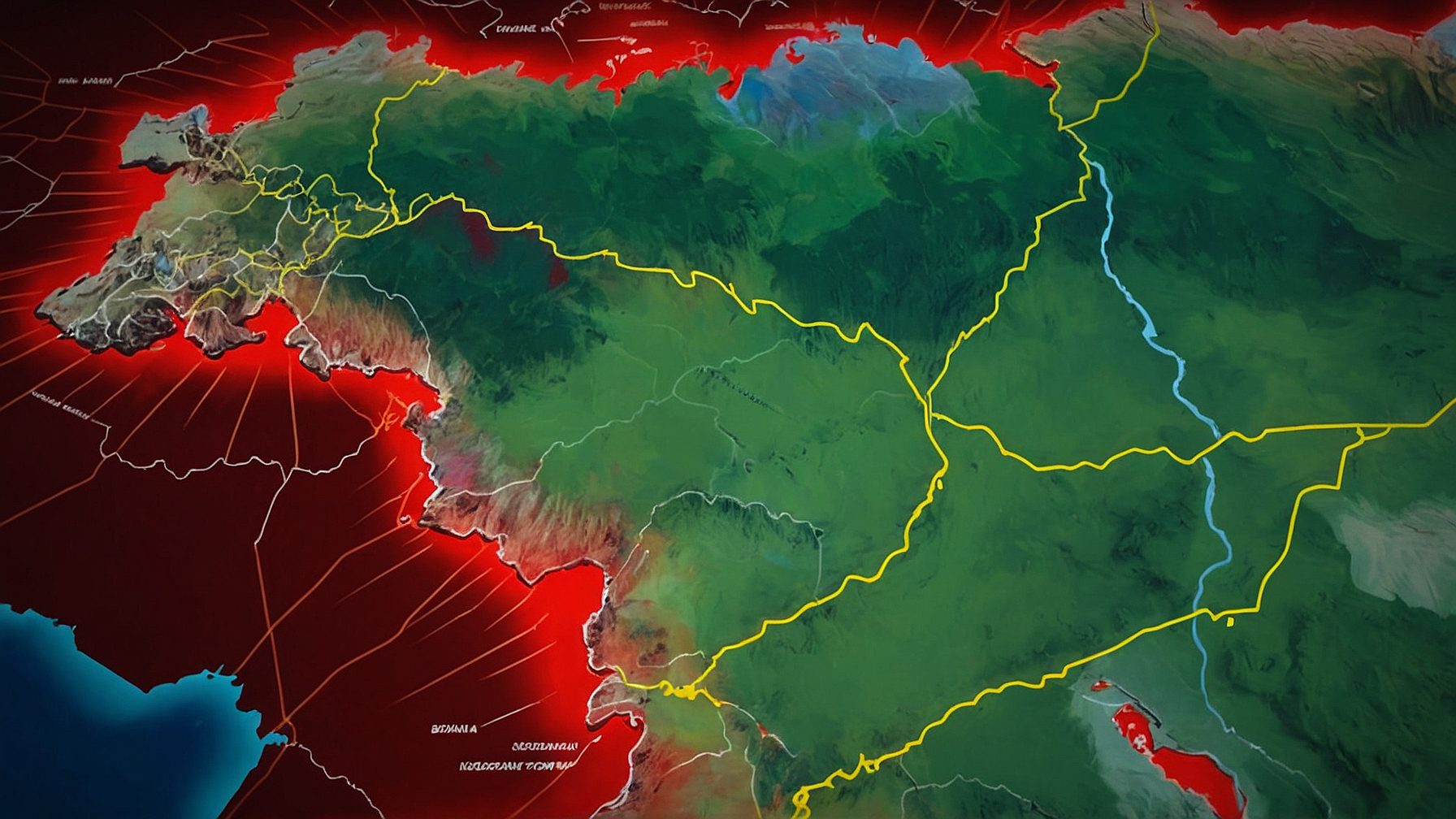In the context of Russia’s full-scale aggression against Ukraine, which has been going on for more than 2 years and 10 years of war in general, the idea of creating a demilitarized security zone along the Ukrainian-Russian border is becoming particularly relevant. Since it was Russia that attacked Ukraine, the security zone should obviously run through the territory of the aggressor country.
This refers to the territories of several Russian border regions that will be freed from military facilities, artillery, missiles, and troop concentrations. That is, there should be no military formations on this territory, with the exception of a limited contingent of border guards, which will be controlled by the international community under the auspices of the United Nations.
The head of the Main Intelligence Directorate, Kirill Budanov, has repeatedly emphasized that there is no other option for ensuring Ukraine’s security in the context of Russia’s still-existing statehood.
The importance of the demilitarized zone
Ukraine is facing an unprecedented challenge to protect its territorial integrity and sovereignty in the face of Russian aggression. In this context, the idea of creating a demilitarized security zone on the territory of Russia adjacent to the Ukrainian border seems strategically sound. Such a zone could provide an additional barrier against military provocations and aggressive actions by Russia.
Constant rocket attacks, bombings and other attacks on peaceful Ukrainian cities make the issue of creating a security zone a non-alternative way to ensure the safety of Ukrainian citizens. And the Kremlin, of course, should take care of Russian citizens.
International support and implementation
Ukraine emphasizes its commitment to the principles of international law, stressing that it does not seek to annex or interfere with the sovereignty of other states.
Ukraine has never claimed territories belonging to other states. Just as it has never agreed to any territorial claims from its neighbors.
The role of the Russian resistance
A very important role in this process is played by Russian civil society and the resistance movement, which are fighting against the Putin regime from within the country. Supporting such groups as the Legion of Freedom of Russia, the Russian Volunteer Corps, and others could be the key to de-escalating the conflict and establishing sustainable peace in the region.
The Ukrainian Security and Defense Forces have not crossed the Russian border and do not intend to do so in the future. Russian citizens who are tired of Putin’s dictatorship are acting on the territory of Russia. And this is the real Russian opposition, not the “salon” opposition that makes red carpet fashion shows.
The way to freedom for Russia is through the red, bloody road of struggle! Currently, Russian citizens participating in the resistance movement are not interested in creating new state entities or unrecognized republics. There is no question of the emergence of a conditional “bnr”. We are talking about creating a region free of the Putin regime, where citizens themselves can make their own civilizational choice.
Potential impact on regional stability
The creation of a demilitarized security zone has the potential not only to reduce the immediate military threat to Ukraine, but also to contribute to the stabilization of the entire region. At the same time, the success of this initiative will depend on the ability of Ukraine and its allies to put effective pressure on Russia to resume peaceful dialogue and reach a constructive solution to the conflict.
In the future, a similar movement may emerge in neighboring Belarus, which openly participates in the aggression on the side of Russia.
Conclusion.
Establishing a demilitarized security zone along the Ukrainian-Russian border is an important step towards ensuring long-term stability and security for Ukraine and its citizens. This initiative requires coordinated international support and willingness to compromise on all sides of the conflict. Further developments will demonstrate whether the international community and regional actors will be able to join forces to achieve sustainable peace in Eastern Europe.
The Russian side is aware of Ukraine’s desire to create such a zone and must take care of the safety of its citizens who may “suddenly” find themselves in a war zone. Therefore, it is the Russian authorities who bear full responsibility for possible “incidents”. The local population must understand the potential danger and, in the absence of a response from the authorities, take care of their own safety. First of all, by evacuating the border areas.
Western allies are aware of Ukraine’s goal of creating a security zone around its border and are sympathetic to it. The Chinese government is aware of the possible creation of a security zone on Russian territory thanks to “unofficial” contacts with Ukraine. In this matter, the Chinese have traditionally been faithful to their principle of “non-interference.”


Leave a Reply